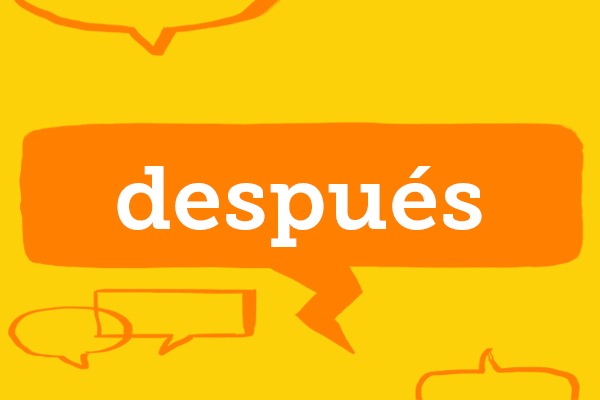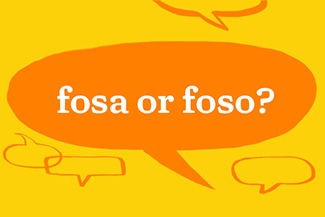This week’s Spanish word of the week is después.
Después is an adverb that means after or afterwards, but also later, next or then. You can listen to the pronunciation of después in the audio clip below:
Después is a very useful word for describing events in time, and is the opposite of antes. For instance, referring to the past:
Después, todos estábamos muy cansados. Afterwards, we were all very tired.
La volví a ver poco después. I saw her again shortly after(wards).
When referring to an event in the future, you generally translate it as later.
No me da tiempo antes de la cena, lo haré después. I haven’t got time before dinner, I’ll do it later.
You also use después in a common phrase to say goodbye:
Nos vemos después. See you later!
Después de is the basic phrase you need to convey the idea of something happening after something else:
Deje un mensaje después de la señal. Please leave a message after the beep.
Se separaron después de diez años de matrimonio. They broke up after ten years of marriage
You use the infinitive after después de if the subject of the verb in both clauses is the same:
Después de comer fuimos a dar un paseo. After lunch we went for a walk.
(= We had lunch and we went for a walk)
If the two subjects are different, and the event is in the past, in normal style you use después de que and the indicative:
Me quedé leyendo después de que fuiste a la cama. I stayed up reading after you went to bed.
But if the event is in the future, you use the subjunctive:
Voy a leer un poco después de que te vayas a la cama. I’m going to read for a bit after you go to bed.
When talking about things that happened it’s often useful to signal the order of events. Después, in the meaning of next or then, can help you do that:
Primero entró en el restaurante. Después fue al salón de baile. First she went into the restaurant. Then she went into the ballroom.
¿Qué hiciste después? What did you do next or then?
Después doesn’t always refer to the past. At a show or concert you might ask:
¿Qué viene después? What comes next?
You can also use después to refer to place as well as time:
Primero está el bar y después mi casa. First there’s the bar and then next to it my house.
Come back next week for another insight into Spanish vocabulary!



